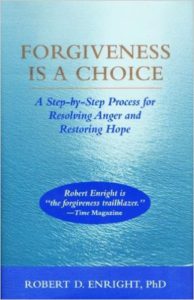Tagged: “break free from the past”
You discuss both pursuing justice and being forgiving at the same time. Since I’m Asian, I know that asking one’s own parent for justice is utterly insulting. Even thinking about forgiving a parent is challenging since it implies that this parent is immoral, which is something I have been raised to never do in my society. What happens next?
It’s crucial, in my opinion, to draw a line between criticizing the parent and accepting that everyone makes mistakes. Being imperfect is not a reason for condemnation. It follows that your parent will occasionally make errors or even do the wrong thing if you are able to accept that they are fallible. After that, you can pardon while being aware that this is not meant to be disrespectful or judgmental. It’s actually an effort to regard your parent as valuable people in spite of their flaws. This, in my opinion, shows respect for the parent as a deserving individual.
That being said, we now have to address the problem of never approaching a parent to request a behavior modification. It seems to rely on how you go about doing it. By adhering to the principles in the opening paragraph, you can approach a parent in a helpful manner rather than an accusing one. Let’s say your parent consistently treats you harshly. Is it possible for you to say something along the lines of, “Yes, I will try to do better.” I sincerely hope that you will recognize the goodness in me.” Put differently, you are highlighting an aspect of yourself for the parent to see. That is not then correcting your parent.
On Contemplating the Forgiveness Process to “Do No Harm”
 There is a part of the forgiving process that we have described in two distinct publications, The Forgiving Life and Forgiveness Is a Choice, where we ask the forgiver to “Do no harm” to the one who has been unfair. In actuality, the concept of “Do no harm” serves as a bridge to the much more challenging task of loving someone who has wronged you. Even though it’s an earlier and purportedly simpler step in the process, “Do no harm” is anything but simple.
There is a part of the forgiving process that we have described in two distinct publications, The Forgiving Life and Forgiveness Is a Choice, where we ask the forgiver to “Do no harm” to the one who has been unfair. In actuality, the concept of “Do no harm” serves as a bridge to the much more challenging task of loving someone who has wronged you. Even though it’s an earlier and purportedly simpler step in the process, “Do no harm” is anything but simple.
 Three things are meant by “do no harm”: 1) Don’t try to deliberately hurt the person who offended you (such as being impolite); 2) Don’t do covert harm (such as sneering, ignoring at a gathering, or remaining impartial toward this one who shares personhood with you); and 3) Don’t hurt other people because of your inner discontent from the one who was unfair to you. Stated differently, it is surprisingly simple to channel your resentment toward Person X onto Persons Y and Z. Perhaps it is a sign that you are projecting anger from a past encounter onto your present interactions if people have to inquire, “What is wrong with my friend today?”
Three things are meant by “do no harm”: 1) Don’t try to deliberately hurt the person who offended you (such as being impolite); 2) Don’t do covert harm (such as sneering, ignoring at a gathering, or remaining impartial toward this one who shares personhood with you); and 3) Don’t hurt other people because of your inner discontent from the one who was unfair to you. Stated differently, it is surprisingly simple to channel your resentment toward Person X onto Persons Y and Z. Perhaps it is a sign that you are projecting anger from a past encounter onto your present interactions if people have to inquire, “What is wrong with my friend today?”
It’s wise to assess your level of resentment at these moments and consider who you should forgive today. Consider asking yourself: As I offer forgiveness, am I “doing no harm”? Because of what I am going through, am I exercising caution so as not to hurt innocent people?
I’m offering you a challenge today: Don’t hurt anyone today. Do the same tomorrow. Do it the day after that.
![]()
Fear or anger—-which of these emotions is more central to overcome with forgiving?
If you are fearful of what the other did to you and might do again, you can avoid reconciliation with this person. You can forgive without reconciling. Forgiveness starts within a person, with thinking and feeling toward the other. You need not take the step of behaving toward the other—of interacting with the other—if this person continues to harm you. This should reduce fear. Anger tends to be reduced first through forgiving. The anger can lessen even more if the other person is repentant, apologizes to you, and changes for the better so that you can reconcile with a sense of genuine trust toward the person.
Is the main test of forgiving the overcoming of anger?
Overcoming anger toward the one(s) who acted unjustly is one of the main ways of knowing that one is on the path of forgiving. As Aristotle reminds us, none of us is perfect in appropriating the virtues. As Aristotle further reminds us, there is much more to any virtue than just one component of it. Therefore, overcoming anger is important and those who so overcome should feel very good about this. At the same time, a forgiver should realize that there are other components of forgiveness that can be cultivated, such as a softened heart toward the one who was unjust. This can include kindness, respect, generosity, and even love for the other. The cultivation of love (the ancient Greek word for this kind of love is agape, or loving others even when it is painful to do so) toward this person seems to be the highest level of forgiving and this can take both effort and time to achieve.
How does going through the forgiveness process alter how one now views the past, in looking back on a betrayal?
When we forgive, we do not literally forget the past. What tends to happen is this: As the one who forgives looks back, there can be some anger or sadness, but it does not overwhelm the forgiver. The person now can look back without the same level of pain that occurred then. Here is an analogy: Have you ever had a broken bone or a sprained ankle? At the time, it was very painful, but once it is healed, and when you look back, you do not experience the exact same level of pain now. It is similar with forgiveness in that, as you look back, the amount of pain tends to be diminished even if some emotional pain is present.



